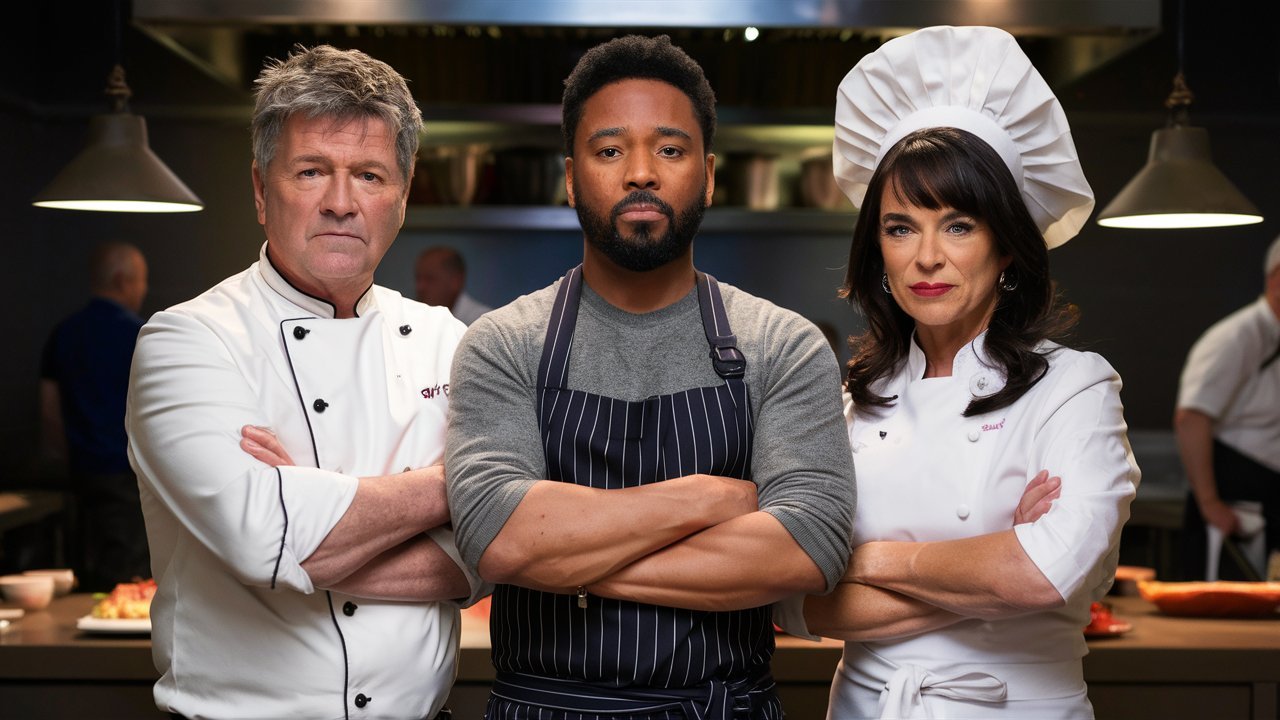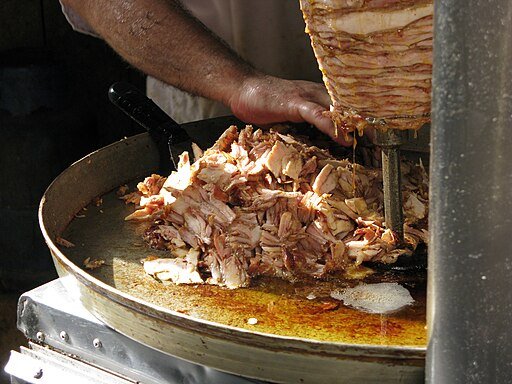Food entrepreneurs are visionaries who transform culinary ideas into successful business ventures.
Becoming successful in this industry is more than just having a passion for cooking or a great recipe. It requires a unique blend of traits and skills beyond the kitchen.
Attributes such as resilience, a strong work ethic, and problem-solving go a long way toward helping any food business thrive and succeed.
Let’s look at what it takes to become successful in this ever-competitive industry.
Passion for Food and Cooking
At the heart of every food entrepreneur lies a genuine love for creating and experimenting with food. This passion drives them to stay updated with food trends and culinary arts, constantly seeking inspiration and innovation.
Without this, sustaining the demanding nature of the food business becomes challenging.

Legendary chef, author, and restaurant franchise owner, Marco Pierre White, regarded by some, as the first celebrity chef, brought a new level of artistry and intensity to the culinary world.
He trained future stars like Gordon Ramsay, Mario Batali, Curtis Stone, and Heston Blumenthal, to name a few.
White was also the first British chef to be awarded three Michelin stars.
Creativity

Creativity is the cornerstone of any successful food venture. Food entrepreneurs must innovate and create unique products or concepts that stand out in the market.
A strong sense of aesthetics for presentation and branding also helps attract and retain customers, making the experience memorable.
Renowned chef and restaurant owner, Marcus Samuelsson, fuses various culinary traditions, including African and Scandinavian influences, into his unique cooking style.
This makes him stand out distinctly from his peers.
Business Acumen
Food entrepreneurs need strategic thinking and the ability to plan long-term. This includes creating a solid business plan, managing finances, and making informed decisions that drive the business forward.

Celebrity chef and award-winning entrepreneur, Gordon Ramsay, owns multiple Michelin-starred restaurants around the world. He has written numerous cookbooks, and starred in various television shows such as “Hell’s Kitchen” and “MasterChef.”He has expanded his brand into television production, restaurant consulting, cookware, and kitchen gadgets.
Rachael Ray has equally hosted multiple successful cooking shows and launched her own magazine, “Every Day with Rachael Ray.” She also has a line of cookware, pet food, and home goods.
She has published many best-selling cookbooks and developed a strong presence in the media.
To run businesses this diverse, you need to understand business principles such as finance, marketing, and operations.
Resilience and Perseverance

The path to success is fraught with setbacks and failures.
Resilience enables food entrepreneurs to bounce back from disappointments and keep pushing toward their goals.
A persistent attitude is essential for overcoming challenges and achieving success.
Chef and TV personality Giada De Laurentiis spoke about her struggles with anxiety and depression and how that affected her personal and professional life.
She was also forced to close three of her restaurants, due to the COVID pandemic.
Despite these setbacks, she recovered and has her business back on track.
Adaptability
The food industry is evolving, with new trends and consumer preferences constantly emerging.

Successful food entrepreneurs are flexible and willing to adapt to these changes.
David Chang, owner of Momofuku, faced numerous challenges in the restaurant industry, including financial struggles and the impact of the COVID-19 pandemic.
He adapted by expanding into media and consumer packaged goods.
Entrepreneurs continue to learn and implement new skills and technologies to stay relevant and competitive.
Attention to Detail
Precision is key in recipe development, quality control, and packaging. Maintaining consistency and high standards ensures customers receive the best product every time.
This also helps to build a reputable brand that customers can trust.

Chef and Restaurant proprietor, Thomas Keller is renowned for his meticulous approach to French cuisine and emphasis on culinary perfection. His restaurants: Napa Valley, French Laundry, Per Se, Ad Hoc, and others, are known for their exceptional quality and attention to detail.
His restaurants: Napa Valley, French Laundry, Per Se, Ad Hoc, and others, are known for their exceptional quality and attention to detail.
Strong Work Ethic and Leadership
Dedication to hard work and long hours is not negotiable, especially during the startup phase. A strong work ethic drives continuous improvement and excellence, setting the foundation for long-term success.
Robert Irvine is a renowned chef and television personality known for his dynamic presence and expertise in the culinary world. He is celebrated for his strong leadership, culinary skills, and commitment to helping struggling restaurants and communities.

Robert Irvine is best known for hosting popular shows like “Restaurant: Impossible.”
In these shows, he demonstrates his ability to transform failing restaurants and tackle challenging culinary missions under tight deadlines.:
Irvine has a strong background in the Royal Navy, where he honed his discipline and leadership skills. He often emphasizes the importance of teamwork and discipline, qualities that have greatly influenced his culinary career.
His leadership style is characterized by a no-nonsense approach and inspires teams to turn around failing businesses.
Good leadership fosters a positive work environment and enhances productivity.
Problem-Solving Skills
The ability to quickly identify problems and find practical solutions is essential.
Issues such as rental costs, labor and ingredient costs, staffing issues, long working hours, high stress, market saturation, and customer service often arise in the food business.
This helps overcome obstacles, ensuring the business runs smoothly.
Customer Focus
Understanding customer needs and preferences is key to delivering exceptional experiences.
 A customer-centric approach builds loyalty and drives repeat business.
A customer-centric approach builds loyalty and drives repeat business.
Loyalty programs help to improve customer retention by offering rewards or incentives that will encourage customers to return to your restaurant or consume your finished product to earn and redeem points or benefits.
In the long run, this will foster a sense of connection and loyalty to the brand among customers.
Financial Literacy
Managing budgets, pricing, and financial planning is crucial for sustainability.
You must understand profitability and cash flow management.
This will help you make informed decisions and ensure the business remains financially healthy.
Visionary Thinking
Envisioning the future of the business and setting strategic goals is important. Innovative thinking helps food entrepreneurs stay ahead of competitors and explore new growth opportunities.
New York City restaurateur Danny Meyer founded the Union Square Hospitality Group (USHG), a pioneer of the “enlightened hospitality” philosophy, focusing on exceptional service and creating welcoming environments.
 His Shake Shack chain revolutionized the fast-casual dining sector with its insistence on fresh produce and an urban focus around the world.
His Shake Shack chain revolutionized the fast-casual dining sector with its insistence on fresh produce and an urban focus around the world.
Risk-Taking Ability

Taking calculated risks is necessary for growth.
Ruth Fertel, founder of Ruth’s Chris Steak House, mortgaged her home to buy a restaurant and turned it into a successful global steakhouse chain, overcoming financial and industry challenges.
Food entrepreneurs must have the courage to venture into new markets or launch new products, understanding that risks are part of the journey to success.
Health and Safety Awareness
Knowledge of health and safety regulations is paramount to the safety of customers.
In 2009, award-winning chef, Heston Blumenthal, and the owner of the Fat Duck, made a public apology after more than five hundred people suffered food poisoning at his restaurant.

The British Health Protection Agency said it found evidence of poor practice at his restaurant, where the source of contamination, oysters, were served.
Maintaining hygiene and safety in food production will help build customer trust.
Food entrepreneurs must prioritize these aspects to avoid legal issues and protect their brand reputation.
Ethical and Sustainable Practices

You should emphasize ethical sourcing and sustainable business practices that resonate with today’s conscious consumers.
Being responsible for environmental and social impact builds a positive brand image and contributes to long-term sustainability.
Spanish cuisine expert, José Andrés, owner of ThinkFoodGroup, is famous for humanitarian efforts through World Central Kitchen.
Chez Panisse owner, Alice Waters advocates for the farm-to-table movement, which emphasizes local, organic, and sustainable ingredients. Her influence goes beyond her restaurant to education and advocacy for better food systems.
Marketing Savvy
Branding, digital marketing, and social media skills are essential for creating buzz and attracting customers.
A solid marketing strategy helps to reach a wider audience and build a strong brand presence. You should run a market analysis to help you understand market trends and identify gaps.
- Learn to identify customers’ needs and address their pain points.
Patience
Building a successful business takes time. Patience is the key to staying focused on long-term goals.
Growing a loyal customer base takes time.
Patience is required to build relationships and encourage repeat business.
Innovative Mindset
The constant pursuit of new ideas and improvement keeps the business dynamic.

Dominique Ansel, is credited with creating the Cronut, a croissant-doughnut hybrid, which gained international fame and led to the expansion of his bakery business globally.
Experimenting with new flavors, techniques, and technologies ensures the business remains fresh and exciting.



